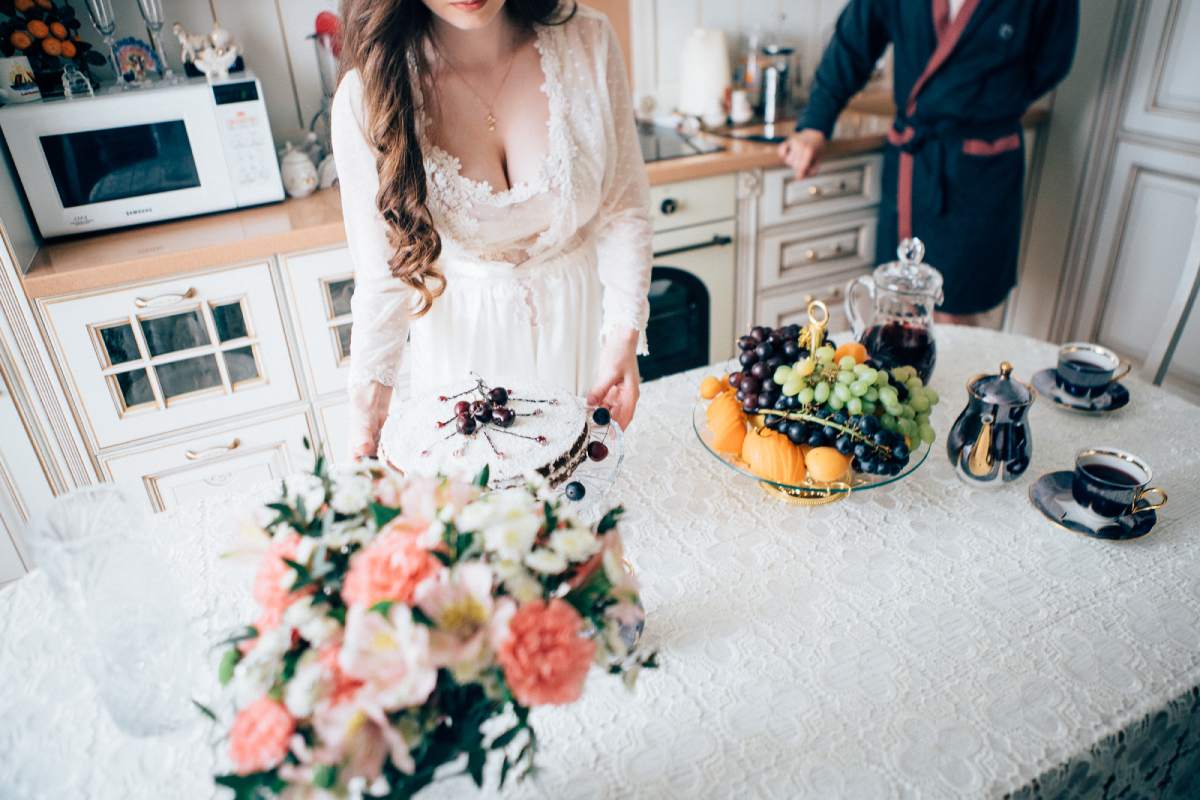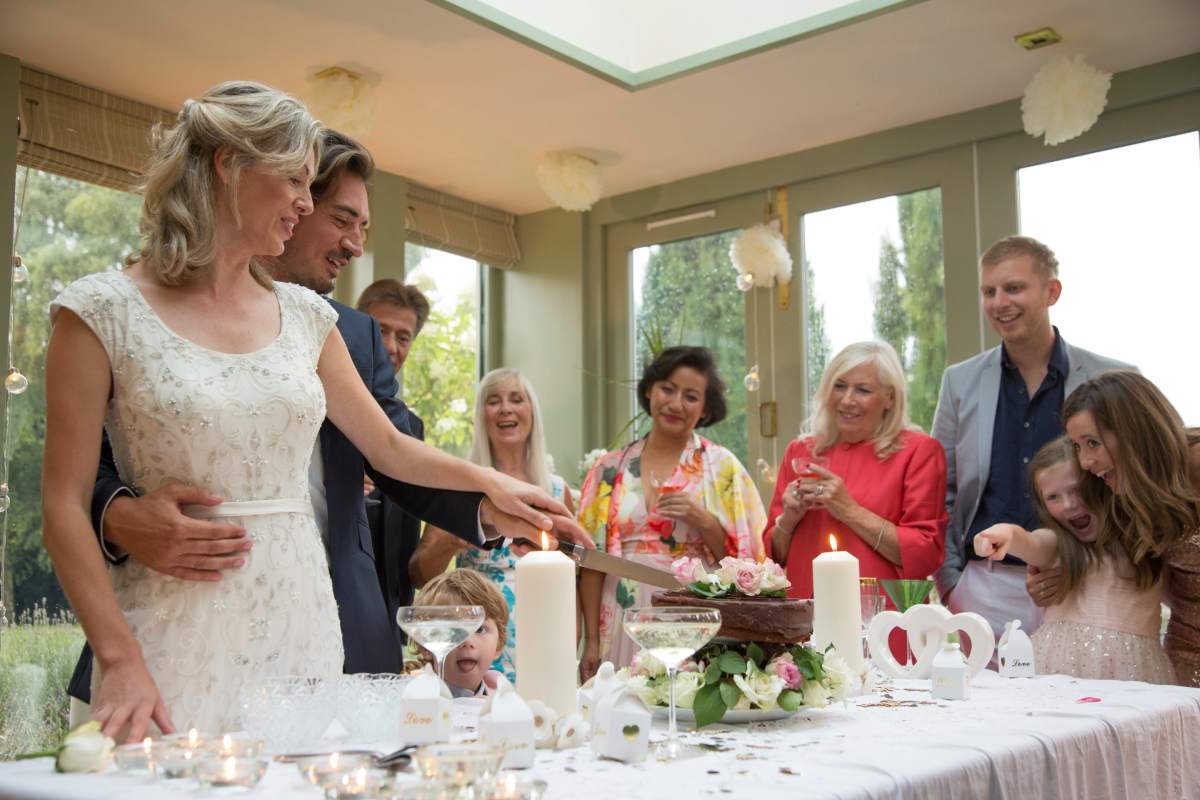Holding a wedding at home can be a beautiful, intimate experience, allowing you to celebrate in a familiar setting filled with personal memories. However, it also comes with unique challenges that require careful planning.
To help make your at-home wedding as smooth and memorable as possible, here are 6 key things you need to know before hosting this significant event at your residence.
1. Space and Layout Considerations
One of the first things to assess when planning a home wedding is whether your home has enough space to accommodate your guests, vendors, and all the necessary elements of a wedding (e.g., ceremony space, reception area, dancing, and dining). Start by creating a guest list and evaluate how your home or yard can fit the number of attendees. You’ll need to plan for:
- Seating Arrangements: Consider both the ceremony and reception. Will guests be comfortable seated for extended periods? Do you need to rent chairs or create alternative seating?
- Flow of the Event: Ensure there’s enough space for guests to move freely between different parts of the event, such as moving from the ceremony area to the reception space.
- Parking: If you’re inviting a sizable crowd, check if you have enough parking or if you’ll need to arrange off-site parking and shuttle services.
Also, think about the layout and how to utilize different areas of your home creatively. If your indoor space is limited, consider using your backyard for an outdoor ceremony or reception. However, always have a contingency plan for bad weather, such as renting a tent or creating an indoor backup plan.

2. Logistics and Infrastructure
Hosting a wedding at home requires taking into account several logistical elements that traditional wedding venues typically handle. These may include:
- Restroom Facilities: Do you have enough bathrooms to accommodate your guests? Depending on the size of your event, you might need to rent additional portable restrooms, especially if the guest count exceeds 20 to 30 people.
- Power Supply: Weddings involve a lot of equipment—lighting, sound systems, catering appliances, etc. Make sure your home’s electrical system can handle the added load, or rent generators if necessary to avoid power outages.
- Noise Restrictions: Check with your local council or homeowners’ association for noise ordinances. Certain areas may have strict rules about loud music or noise past certain hours, which could impact your reception’s duration and activities.
- Clean-up Services: Consider hiring a cleaning crew to handle post-event clean-up. Hosting a wedding at home means the responsibility for restoring your house afterwards falls on you, and it can be overwhelming after an already busy day.
3. Vendor Coordination
Unlike professional venues, which have built-in vendor partnerships, a home wedding means you’ll need to handle vendor logistics on your own. This includes coordinating:
- Catering: Can your kitchen accommodate a professional caterer? Many caterers may need to bring their own equipment, such as mobile kitchens, if your facilities aren’t large enough to handle cooking for a large group.
- Florists, Photographers, and Musicians: Communicate with each vendor about space restrictions and your home’s layout. Photographers, for example, may need to scope out the venue in advance to plan for lighting and optimal photo spots, while musicians need to know where they can set up equipment.
- Rentals: From tables, chairs, and tents to tableware and lighting, home weddings often require renting these items. Work with a rental company to determine what’s needed based on your guest list and event plan.
Vendor coordination can be tricky, so having a detailed schedule of when each vendor will arrive, set up, and leave is crucial. Assign someone from your family or hire a day-of coordinator to manage vendor arrivals and needs to reduce stress.

4. Permits and Insurance
Depending on the scale of your event, you may need to secure permits or extra insurance. Here are some areas to investigate:
- Permits for Events: Some local governments require permits for large gatherings, especially if you’ll be setting up structures like tents or making noise late into the evening. Contact your city or county authorities to see what is required.
- Liability Insurance: If something goes wrong—like a guest being injured or property damage occurring—you’ll want to be covered. Some insurance companies offer special event insurance policies that cover liabilities for weddings at home. Talk to your insurance provider to understand what’s necessary.
- Alcohol Permits: If you’re serving alcohol, check to see if you need a permit or if you’ll need to hire a licensed bartender. Some locations have strict alcohol regulations for private events, even in homes.
5. Guest Comfort and Safety
Ensuring your guests are comfortable and safe is a major priority for any wedding, especially one hosted at home. Here are key elements to address:
- Climate Control: If your wedding is outdoors, think about the weather. For a summer wedding, renting fans or providing shaded areas can keep guests cool. For a fall or winter wedding, heaters and blankets may be necessary.
- Accessibility: Is your home easily accessible for all guests? If you have elderly relatives or guests with mobility issues, ensure they can move around comfortably, whether that’s installing temporary ramps or ensuring restrooms are easy to reach.
- Safety Concerns: Depending on your home’s layout, certain areas might need to be restricted for safety reasons, especially if you have stairs, pools, or uneven terrain. Make sure to highlight these areas and perhaps set up barriers or signs.
- Pest Control: An outdoor event can attract unwanted guests in the form of insects, especially during warmer months. Look into bug control measures, such as citronella candles or bug spray stations.

6. Personalizing Your Space
One of the biggest advantages of having a wedding at home is that it gives you the chance to truly personalize your surroundings. Infuse your home with elements that reflect your love story and personality.
- Sentimental Decor: Use family heirlooms, old photos, or DIY crafts to decorate. This adds a unique, personal touch that guests won’t find at a traditional venue.
- Tailored Themes: Since it’s your home, you can choose any theme or style that suits you without worrying about clashing with a pre-existing venue design. Whether it’s a rustic, backyard vibe or a chic, modern aesthetic, the sky’s the limit.
- Use of the Garden or Nature: If you have a garden, take advantage of the natural beauty. String lights in trees, creating flower paths, or setting up an arbour for the ceremony. The natural landscape can provide an extraordinary backdrop for photos and add to the romantic atmosphere.
Make sure that all these personalized details fit in with your overall event plan. Sometimes simplicity is the best route, especially when you’re trying to avoid overwhelming your space.







